How Are Airdrops Taxed?

Table of Contents
- Overview of Cryptocurrency Airdrops
- Understanding Crypto Airdrops
- Tax Authorities and Airdrop Guidance
- Taxable Events for Airdrops
- Income vs. Capital Gains
- Reporting Airdrops for Individuals
- Airdrops for Businesses
- Cross-Border Airdrop Tax Considerations
- Losses, Write-Offs, and Tax Planning
- Airdrop Staking, Utility, and Governance Tokens
- NFT Airdrops and Special Cases
- Airdrop Tax Software and Reporting Tools
- Common Mistakes and Audit Risks
- Voluntary Disclosure and Correcting Past Mistakes
- Tax-Advantaged Strategies for Airdrop Investors
- Future of Airdrop Taxation
- Conclusion
Overview of Cryptocurrency Airdrops
Cryptocurrency airdrops have emerged as a popular mechanism in the blockchain ecosystem, enabling projects to distribute tokens directly to users’ wallets without any immediate cost to the recipient. Airdrops are often used as marketing tools to promote new projects, reward loyal community members, incentivize early adoption, or distribute governance tokens to token holders. Unlike typical token purchases on exchanges, airdrops provide an entry point into the crypto ecosystem that can create both opportunities and tax obligations for recipients.
From an investor’s perspective, airdrops can represent an unexpected source of income or capital appreciation. Recipients may gain access to tokens they did not actively purchase, creating questions about how to classify, track, and report these assets for tax purposes. Since the value of airdropped tokens can fluctuate rapidly upon release, understanding the initial taxable event and subsequent reporting obligations is crucial.
Why Airdrop Taxation is Important for Investors
Ignoring the tax implications of airdrops can lead to significant financial consequences. Tax authorities around the world, including the IRS in the United States and the CRA in Canada, have clarified that airdrops are generally considered taxable events. This means that recipients may owe income taxes on the fair market value of tokens at the time they are received, even if they have not sold or traded them yet.
For investors, proper airdrop tax compliance ensures:
-
Accurate income reporting to avoid penalties or interest
-
Correct determination of cost basis for future capital gains calculations
-
Efficient tax planning opportunities to offset losses and optimize liabilities
Failing to understand these requirements can result in underreporting, triggering audits, penalties, and unnecessary stress. Proper planning and professional guidance are essential to navigate the complexity of airdrop taxation.
Differences Between Airdrops and Other Crypto Transactions
Airdrops differ from standard cryptocurrency transactions in several key ways:
-
Cost Basis: Unlike purchased crypto, airdropped tokens have no initial purchase price. Taxable income is generally determined by the fair market value at the time of receipt.
-
Timing of Taxable Event: While buying crypto is only taxable when sold in most jurisdictions, airdrops can create a taxable event immediately upon receipt.
-
Purpose: Airdrops are often distributed for promotional or reward purposes rather than as an investment, which can influence how tax authorities classify them.
-
Record-Keeping Requirements: Because recipients may receive airdrops from multiple sources over time, meticulous tracking is necessary to maintain accurate records for tax reporting.
Understanding these distinctions is critical to ensuring compliance and avoiding surprises when filing taxes.
If you have received cryptocurrency airdrops and are unsure how to report them correctly, Block3 Finance can help. Our experts specialize in crypto tax compliance, ensuring accurate reporting, proper cost basis calculation, and optimized tax outcomes. Book a free consultation today to safeguard your crypto holdings and stay fully compliant.
Understanding Crypto Airdrops
What is an Airdrop? Free Tokens Explained
A cryptocurrency airdrop is the distribution of free tokens to holders of an existing blockchain asset or participants in a particular network. Airdrops can serve various functions, including rewarding early adopters, incentivizing specific behaviors, or marketing new projects.
Typically, the airdrop is automated: smart contract can verify eligible wallet addresses and distribute tokens accordingly. For the recipient, no action may be required other than holding a particular token or signing up with a platform. Despite the “free” nature of these tokens, tax authorities treat the received value as taxable income in most jurisdictions, creating obligations even if the investor has not sold the tokens.
Types of Airdrops
Airdrops can take several forms, each with unique characteristics:
-
Standard Airdrops: Tokens are distributed to users based on a snapshot of existing blockchain addresses. No specific action is required by the recipient.
-
Holder-Based Airdrops: Tokens are sent to users holding a specific cryptocurrency at a particular point in time. This method rewards loyal holders and incentivizes long-term investment.
-
Hard-Fork Airdrops: Occur when a blockchain splits, and new tokens are issued on the resulting chain. Holders of the original chain typically receive equivalent tokens on the new chain.
-
Promotional Airdrops: Projects distribute tokens to users who perform specific actions, such as signing up for a platform, joining a community, or sharing promotional content.
Airdrops vs. ICOs, Staking Rewards, and Other Token Distributions
While airdrops are often confused with other token distributions, they differ significantly:
-
ICOs (Initial Coin Offerings): Investors purchase tokens, creating a direct cost basis. Airdrops involve no purchase and often require taxation upon receipt.
-
Staking Rewards: Tokens earned through staking represent income generated from network participation. Unlike airdrops, staking rewards are tied to service provision or investment activity.
-
Other Distributions: Forks, rewards, and promotional incentives can resemble airdrops but may have different tax treatments depending on jurisdiction and conditions.
For tax purposes, correctly classifying each distribution type ensures compliance and minimizes risk of misreporting.
Managing airdrops, staking rewards, and other token distributions can be complex. Block3 Finance helps crypto investors and traders accurately track, classify, and report all types of token income. Book a free consultation to ensure your crypto tax reporting is precise and compliant.
Tax Authorities and Airdrop Guidance
Global Approaches to Airdrop Taxation
Regulators worldwide are taking varying approaches to taxing cryptocurrency airdrops. While many countries recognize airdrops as taxable income, the timing, classification, and reporting requirements can differ significantly.
-
United States: The IRS considers airdrops as ordinary income, taxable at fair market value upon receipt. Subsequent gains or losses from selling the tokens are treated as capital gains or losses.
-
Canada: The CRA generally treats airdropped tokens as taxable income at fair market value when received. The CRA emphasizes meticulous record-keeping to track cost basis for future capital gains calculations.
-
European Union: Tax treatment varies by country. Some treat airdrops as income, while others may defer taxation until disposal.
-
United Kingdom: HMRC generally considers airdrops as miscellaneous income when the recipient receives them.
-
Australia: The ATO classifies airdropped tokens as ordinary income at the time of receipt, with subsequent disposal subject to capital gains tax.
IRS Guidance on Airdrops in the United States
The IRS has clarified that receiving cryptocurrency through an airdrop is considered gross income. Taxable income is based on the fair market value of tokens on the day they are received. This applies regardless of whether the airdrop is voluntary or tied to network participation.
CRA and Other Country-Specific Guidance
The CRA treats airdrops as property received for consideration and typically taxable when the recipient has control over the asset. Accurate reporting of airdrops is crucial for compliance, and failure to report can result in penalties, interest, or audits. Other countries may follow similar principles but differ in thresholds, reporting forms, or classifications.
Challenges Regulators Face
Defining tax rules for airdrops is challenging due to:
-
Rapid innovation: The fast-evolving nature of crypto networks makes consistent regulation difficult.
-
Decentralization: Tokens are often distributed by decentralized projects without a central authority, complicating enforcement.
-
Valuation complexity: Determining fair market value at the time of receipt can be difficult, especially for low-liquidity tokens.
-
Classification ambiguity: Distinguishing between income, gifts, rewards, or capital gains requires careful analysis.
Navigating international airdrop tax rules can be overwhelming. Block3 Finance offers expert guidance to ensure your global crypto income is reported correctly, and compliance requirements are met across jurisdictions. Book a free consultation to protect your assets and optimize your tax reporting today.
Taxable Events for Airdrops
Receiving an Airdrop: When Is It Taxable?
Cryptocurrency airdrops are generally taxable at the moment the recipient has control over the tokens. “Control” typically means the ability to transfer, sell, or otherwise use the tokens.
Even if the airdrop was unexpected or distributed automatically by a blockchain protocol, tax authorities in many jurisdictions consider the recipient to have received income at the fair market value of the tokens when they gain control.
Key considerations for taxable events:
-
Immediate receipt vs. delayed access: If tokens are sent to a wallet but subject to a lockup or vesting schedule, taxation may be deferred until tokens are accessible.
-
Soft vs. hard forks: Tokens received as part of a blockchain fork are treated similarly to airdrops, with fair market value taxed at the moment of control.
-
Promotional or bonus airdrops: Tokens received for signing up to a platform or participating in network activities are treated as income, even if the recipient did not invest.
Fair Market Value Determination at the Time of Receipt
Determining the fair market value (FMV) of airdropped tokens is critical for tax reporting. Authorities typically define FMV as the exchange rate on the day tokens are received.
Best practices:
-
Use reliable exchange prices at the timestamp the tokens are accessible.
-
If the token is illiquid or not listed on exchanges immediately, use the first public trading price or an estimated valuation from reputable sources.
-
Document the method used for FMV calculation to support future reporting and potential audits.
Example: If an airdrop delivers 100 tokens worth $5 each at the time of receipt, the recipient must report $500 as income, regardless of whether they sell the tokens immediately.
Selling Airdropped Tokens: Capital Gains Implications
Once tokens are sold, the difference between the selling price and the original FMV (used as cost basis) is subject to capital gains tax.
Key points:
-
Short-term vs. long-term gains: In jurisdictions like the US, holding periods may determine tax rates for capital gains.
-
Cost basis: The FMV at receipt becomes the cost basis for calculating gains or losses when tokens are sold or exchanged.
-
Tracking multiple airdrops: Accurate records are crucial if a recipient receives multiple airdrops over time to avoid misreporting gains.
Special Cases: Lockups, Vesting Periods, and Conditional Airdrops
Some airdrops include vesting schedules or conditions:
-
Vesting periods: Tokens that are locked and cannot be transferred may not be taxable until released.
-
Conditional airdrops: Tokens contingent on performing tasks, maintaining holdings, or participating in governance may trigger taxation only when conditions are met.
-
Phased airdrops: Recipients may receive tokens in multiple installments, each treated as a separate taxable event.
Understanding taxable events for airdrops is complex, especially with lockups, conditional releases, and multiple distributions. Block3 Finance specializes in accurate airdrop reporting, FMV calculation, and compliance. Book a free consultation to ensure all your airdrop income is correctly reported and your cost basis is optimized.
Income vs. Capital Gains
Determining if Airdrop Gains Are Ordinary Income or Capital Gains
Tax authorities typically classify airdrop gains differently depending on the recipient’s intent and activity:
-
Ordinary income: Most airdrops are considered ordinary income at receipt. The FMV at the time of receipt is taxable as regular income.
-
Capital gains: Subsequent appreciation in the token value from receipt to sale is considered capital gains.
For example:
-
Receive airdrop: 200 tokens valued at $2 each → $400 ordinary income.
-
Later, sell tokens for $5 each → $600 capital gains.
Differences for Individual Investors vs. Traders or Businesses
-
Individual investors: Ordinary income is recognized at the time of receipt, capital gains on subsequent sale. Reporting is typically on personal tax returns.
-
Active traders or businesses: Frequent airdrop income may be treated as business income, subject to self-employment or corporate tax rates. The classification affects deductions, tax rates, and record-keeping obligations.
Considerations for classification:
-
Frequency of airdrops received
-
Intention to resell tokens quickly
-
Level of organization and business-like activities surrounding airdrops
Examples and Case Studies of Income vs. Capital Gains Scenarios
-
Example 1: An individual receives a one-time promotional airdrop of 50 tokens worth $10 each. Income = $500. Sells a month later at $12 per token. Capital gain = $100.
-
Example 2: A crypto trader regularly receives airdrops as part of a token farming strategy. All tokens received are treated as business income, taxed at regular income rates, with gains on sale also reported.
-
Example 3: A corporate treasury receives airdrops for tokens held as strategic investments. Initial receipt may be recognized as corporate income, subsequent sale generates capital gains for the company.
Differentiating between ordinary income and capital gains for airdrops can be nuanced. Block3 Finance helps individuals, traders, and businesses classify each airdrop correctly, optimize tax liabilities, and maintain audit-proof records. Book a free consultation to ensure your airdrop transactions are reported accurately.
Reporting Airdrops for Individuals
How to Report Airdrop Income on Personal Tax Returns
Airdrop income must be reported in the tax year when the tokens are received and the recipient has control. Key points include:
-
Report FMV at the time of receipt as ordinary income.
-
Include subsequent gains or losses on sale as capital gains/losses.
-
Maintain detailed records of token type, quantity, FMV, date of receipt, and transaction history.
Forms Required
-
United States:
-
Form 1040: Report ordinary income from airdrops
-
Schedule D: Report capital gains/losses on token sales
-
Form 8949: Track individual transactions with dates, cost basis, and proceeds
-
-
Canada:
-
T1: Personal tax return for individuals
-
Schedule 3: Capital gains reporting
-
T1135: If foreign assets exceed threshold amounts (relevant for airdrops received from foreign platforms)
-
Record-Keeping Best Practices
-
Keep screenshots, exchange statements, and wallet records for each airdrop.
-
Track multiple airdrops with spreadsheets or crypto tax software for accuracy.
-
Record the FMV used for income reporting and the source of valuation to support audits.
Common Pitfalls
-
Failing to report airdrop income in the year received
-
Using incorrect FMV for taxable income
-
Misclassifying ordinary income as capital gains at receipt
Reporting airdrops accurately is crucial to avoid audits and penalties. Block3 Finance provides end-to-end support for individual airdrop reporting, including FMV tracking, capital gains calculations, and proper tax filing. Book a free consultation today to ensure your airdrops are fully compliant and your reporting is optimized.
Airdrops for Businesses
Accepting Airdrops as Payment or Business Assets
Businesses may receive airdropped tokens as part of strategic partnerships, marketing campaigns, or as compensation for services. In such cases:
-
Tokens received are generally treated as ordinary income at their fair market value on the date the business gains control.
-
Airdrops received as payment for services rendered are included in revenue and may affect corporate income tax.
-
If received as investment assets, the business must track cost basis and recognize gains or losses upon disposition.
Key considerations for businesses:
-
Valuation at receipt: The FMV at the time of control establishes the initial accounting entry.
-
Token liquidity: Tokens may be illiquid or fluctuate significantly in value, requiring careful accounting.
-
Multiple airdrops: Businesses may receive periodic airdrops across multiple projects, each creating separate taxable events.
Tax Implications for Corporations and Small Businesses
-
Corporate income tax: Airdrops received by a corporation are generally taxable at the corporate rate as ordinary income.
-
GST/HST considerations (Canada): If airdrops are received in exchange for services, they may affect GST/HST reporting.
-
Accounting treatment: Tokens can be recorded as inventory, intangible assets, or other financial assets depending on usage and intent.
Deductible Expenses Related to Airdrops
Businesses may incur expenses directly related to airdrop activities that are tax-deductible, such as:
-
Gas fees for receiving or moving tokens
-
Legal and accounting fees related to token compliance
-
Marketing costs associated with promoting or participating in airdrops
-
Custodial or security costs for token storage
Accounting and Bookkeeping Considerations
-
Maintain segregated accounts for airdropped tokens separate from other business crypto holdings.
-
Record FMV at receipt for each airdrop as revenue or capital asset cost basis.
-
Track disposition transactions to accurately calculate gains, losses, and inventory adjustments.
Managing airdrops as a business involves careful accounting, tax planning, and compliance. Block3 Finance can help your business accurately record airdrops, optimize tax deductions, and ensure corporate reporting is fully compliant. Book a free consultation to streamline your crypto asset management.
Cross-Border Airdrop Tax Considerations
Receiving Airdrops from Foreign Exchanges or Projects
Airdrops may originate from foreign platforms, creating cross-border tax obligations:
-
The fair market value at the time of receipt is generally taxable in the recipient’s country of residence.
-
Tokens held on foreign wallets may trigger foreign asset reporting.
-
Regulatory guidance varies: some countries require reporting immediately, others allow deferred recognition if tokens are illiquid.
Reporting Foreign Crypto Accounts
-
United States: Foreign accounts holding crypto may require reporting on FBAR (FinCEN Form 114) and FATCA (Form 8938).
-
Canada: Foreign crypto holdings may require disclosure under T1135 if the total foreign assets exceed threshold amounts.
-
Other jurisdictions: Always check local guidance for thresholds and reporting requirements.
Double Taxation and Tax Treaty Considerations
-
Tax treaties may provide relief from double taxation on cross-border airdrops.
-
Businesses and individuals should analyze:
-
Which country taxes income first
-
Available foreign tax credits for taxes paid abroad
-
Residency rules to determine primary taxing jurisdiction
-
-
Example: A Canadian investor receives airdropped tokens from a US project. FMV at receipt is taxable in Canada, but taxes paid in the US may be credited against Canadian tax liability to avoid double taxation.
Cross-border airdrops can expose investors and businesses to complex tax obligations. Block3 Finance helps navigate foreign account reporting, tax treaties, and multi-jurisdiction compliance. Book a free consultation to ensure your international airdrop transactions are fully compliant.
Losses, Write-Offs, and Tax Planning
Using Airdrop Losses to Offset Gains
-
Airdropped tokens that decrease in value can generate capital losses when sold.
-
Losses from airdrops may offset:
-
Gains from other crypto transactions
-
Gains from NFTs or other digital assets in some jurisdictions
-
-
Accurate tracking of cost basis (FMV at receipt) and sale proceeds is essential for maximizing write-offs.
Tax-Loss Harvesting Strategies for Airdrops
-
Sell depreciated tokens to realize losses before year-end to reduce overall taxable gains.
-
Repurchase strategies: In some jurisdictions, wash sale rules may limit immediate repurchase to claim losses.
-
Portfolio-wide optimization: Combine airdrop losses with gains from other crypto investments for net tax benefits.
Carrying Forward Losses to Future Tax Years
-
Capital losses not used in the current tax year may be carried forward:
-
Canada: Net capital losses can offset future capital gains indefinitely.
-
United States: Net capital losses can offset $3,000 per year of ordinary income, with excess carried forward.
-
-
Proper documentation ensures these losses are recognized in subsequent filings.
Planning Considerations
-
Combine airdrop income and losses with other crypto holdings for a holistic tax strategy.
-
Plan airdrop participation and disposition timing to minimize tax liabilities.
-
Consider professional guidance for multi-asset, multi-jurisdiction portfolios to optimize outcomes.
Optimizing airdrop losses, planning tax harvesting, and ensuring correct carry-forward treatment can significantly reduce your crypto tax liability. Block3 Finance provides expert guidance on loss management, portfolio optimization, and comprehensive airdrop tax planning. Book a free consultation today to safeguard your crypto investments and minimize tax risks.
Airdrop Staking, Utility, and Governance Tokens
Tax Treatment of Staking Airdropped Tokens
When airdropped tokens are staked to earn additional rewards:
-
The initial airdropped token is taxable at its fair market value at the time of receipt, even before staking begins.
-
Staking rewards earned from these airdropped tokens are also taxable as ordinary income in most jurisdictions.
-
Timing of recognition is critical: taxable income arises when tokens are credited to your wallet or when you gain control over them.
Considerations for businesses and individuals:
-
Record the FMV at receipt and track subsequent staking rewards separately.
-
If staking rewards are compounded (reinvested automatically), each reward instance may create a new taxable event.
-
Accurate record-keeping prevents over- or under-reporting and ensures proper audit readiness.
Governance Token Distributions and Associated Tax Implications
Governance tokens are often distributed via airdrops to incentivize participation in decentralized protocols:
-
Recipients may be considered active participants, making the tokens taxable as income at FMV.
-
If tokens provide voting rights but no direct monetary benefit, taxation may depend on local regulations and whether tokens can be monetized.
-
Selling governance tokens later triggers capital gains tax, calculated on the difference between sale proceeds and initial FMV at the time of receipt.
Key points for investors:
-
Maintain a ledger of token receipt dates, FMV, and sale prices.
-
Understand local rules: some countries treat governance tokens as income upon receipt, while others defer taxation until disposal.
-
Consider implications for Decentralized Autonomous Organizations (DAOs) participation, where multiple airdrops or staking rewards are received regularly.
Utility Token Airdrops in Gaming, DeFi, and Metaverse Platforms
Utility token airdrops often serve as incentives in gaming platforms, DeFi projects, or virtual real estate ecosystems:
-
Tokens enabling access to services or platforms may still have taxable FMV when received.
-
Using utility tokens for in-platform activities (purchases, upgrades) may create spending-related taxable events.
-
Swapping utility tokens for other crypto or fiat triggers capital gains tax, calculated from the original FMV at receipt.
Planning considerations:
-
Track token type, purpose, and usage to determine correct tax treatment.
-
DeFi platforms may send multiple small airdrops; each may represent a separate taxable event.
-
For gaming or virtual worlds, even if tokens have no current market value, local tax authorities may still treat them as taxable income based on potential FMV.
Airdrops involving staking, governance, or utility tokens carry complex taxation rules. Block3 Finance can help you track, record, and report these tokens accurately, optimizing your tax position and ensuring full compliance. Book a free consultation today to manage your airdrop portfolio confidently.
NFT Airdrops and Special Cases
Receiving NFTs Through Airdrops
NFTs are increasingly distributed as airdrops in gaming, art, and DeFi ecosystems:
-
The fair market value of the NFT at receipt is generally considered taxable income.
-
Airdropped NFTs may also generate capital gains when sold or exchanged later.
-
Some NFTs have additional rights or revenue streams (royalties, staking), creating multiple taxable events.
Record-keeping best practices:
-
Record date of receipt, estimated FMV, platform, and blockchain address.
-
Track royalty income separately for NFTs generating recurring income.
-
Maintain a clear audit trail, particularly for rare or high-value NFT collectibles.
Tax Implications for NFT Collectors and Investors
-
NFT collectors may face different treatment than creators:
-
Personal-use NFTs may not be taxable until sold.
-
Investment NFTs are subject to capital gains or losses when disposed.
-
-
Regular traders of NFT airdrops may be classified as businesses, triggering ordinary income recognition for each transaction.
-
NFT swaps, fractionalized NFT trading, or leveraging NFTs as collateral can create additional taxable events.
Cross-Border Considerations for NFT Airdrops
-
NFTs received from foreign platforms may trigger foreign asset reporting requirements.
-
Tax obligations may vary depending on residency and local laws:
-
United States: FBAR, FATCA, and Form 1040 reporting may apply.
-
Canada: T1135 may require disclosure if NFT holdings exceed thresholds.
-
-
Tax treaties may offer relief from double taxation, but careful tracking is essential.
NFT airdrops are a specialized area with unique tax complexities. Block3 Finance provides expert guidance on NFT airdrop reporting, cross-border compliance, and portfolio management, ensuring you maximize tax efficiency while staying fully compliant. Schedule a free consultation to simplify your NFT taxation.
Airdrop Tax Software and Reporting Tools
Benefits of Using Crypto Tax Software for Tracking Airdrops
-
Automatically imports transactions from wallets and exchanges, reducing manual entry errors.
-
Calculates FMV, gains, losses, and income for multiple tokens.
-
Generates tax-ready reports for personal and corporate filings.
-
Helps track airdrops from multiple projects and multiple blockchains efficiently.
-
Provides historical price data for accurate FMV calculation at receipt or disposal.
Popular Platforms for Airdrop Reporting
-
Koinly – Supports multiple exchanges, wallet types, and automated FMV calculation.
-
CoinTracker – Offers portfolio management, tax reporting, and DeFi integration.
-
TokenTax – Provides advanced reporting, including IRS-compliant forms for US taxpayers.
-
CryptoTrader.Tax – Imports transactions and generates capital gains and income reports.
Additional tools for NFT and special airdrops:
-
Zerion or Debank – Helps track DeFi airdrops.
-
Custom spreadsheets – For niche or manual airdrops, maintaining FMV and transaction logs is critical.
Manual vs. Automated Reporting: Pros and Cons
Manual Reporting:
-
Pros: Full control, flexibility for unique cases, no subscription costs.
-
Cons: Error-prone, time-consuming, requires extensive knowledge of tax rules.
Automated Software:
-
Pros: Accurate FMV tracking, faster reporting, audit-ready reports, integration with multiple exchanges.
-
Cons: May require subscription fees, some manual adjustments needed for unusual airdrops, less flexible for complex cross-chain events.
Best practice: Combine software for bulk tracking with manual review for exceptional cases, such as rare NFT airdrops or cross-border transactions.
Tracking airdrops across multiple wallets and blockchains can be overwhelming. Block3 Finance helps investors and businesses leverage software, perform accurate reporting, and maintain audit-ready records, ensuring compliance while optimizing tax outcomes.
Book a free consultation to streamline your airdrop management today.
Common Mistakes and Audit Risks
Failing to Report Airdrops
One of the most frequent mistakes among crypto investors is failing to report airdrops altogether. Many individuals assume that because airdrops are “free” tokens, they are not taxable. However:
-
Most tax authorities, including the IRS, CRA, HMRC, and EU regulators, treat airdrops as ordinary income at fair market value upon receipt.
-
Failure to report can trigger audits or penalties, even if the total value seems minimal.
-
Casual investors may overlook small, recurring airdrops, but collectively, these can amount to significant taxable income.
Example: An investor receives 10 small airdrops monthly worth $50 each. Over a year, this totals $6,000 in income that must be reported. Failure to do so can lead to back taxes, interest, and penalties if audited.
Misclassifying Airdrop Income or Capital Gains
Another common error involves incorrectly categorizing airdrop gains:
-
Treating airdrops as capital gains instead of ordinary income upon receipt.
-
Misreporting airdrops as gifts or promotional tokens, which may have different tax rules.
-
Confusing staking rewards derived from airdrops with the initial airdrop itself; each has distinct taxation rules.
Case study: A trader receives a governance token airdrop, stakes it for additional rewards, and sells some tokens later. Incorrectly combining the initial airdrop’s FMV with staking income can understate ordinary income and trigger an audit.
Audit Triggers and How to Avoid Mistakes
Airdrop-related audits often arise due to:
-
Large airdrops unreported on returns.
-
Frequent, high-volume airdrops without clear record-keeping.
-
Cross-border transactions with foreign wallets or exchanges.
Avoiding audit risk:
-
Maintain detailed records: date, FMV, source, transaction ID.
-
Use automated tracking tools or crypto tax software to capture recurring airdrops.
-
Consult with tax professionals to classify income correctly (ordinary income vs. capital gains).
-
Stay updated with country-specific guidance, as rules for airdrops are still evolving.
Block3 Finance helps investors avoid costly mistakes, minimize audit risks, and ensure accurate airdrop reporting. Book a free consultation to get your crypto tax filings fully compliant.
Voluntary Disclosure and Correcting Past Mistakes
IRS and CRA Voluntary Disclosure Programs
Many investors may discover that they missed reporting airdrops in past tax years. Both the IRS and CRA offer voluntary disclosure programs:
-
IRS Voluntary Disclosure Program (VDP): Allows taxpayers to correct past errors and avoid some penalties if the disclosure is voluntary and complete.
-
CRA Voluntary Disclosures Program (VDP): Similarly, taxpayers can disclose unreported crypto income to reduce or eliminate penalties.
Key points:
-
Full disclosure is mandatory: partial or inaccurate disclosures can result in increased scrutiny.
-
Timing matters: disclosure should be before being contacted by authorities for a smoother process.
-
Voluntary disclosures may still require back taxes and interest, but penalties are often reduced significantly.
How to Amend Returns for Unreported Airdrops
Steps to correct past mistakes:
-
Gather all airdrop records, including dates, FMVs, wallets, and exchanges.
-
Calculate unreported income for each tax year affected.
-
Prepare an amended return using proper forms (e.g., Form 1040X for the US, T1X for Canada).
-
Include all supporting documentation and notes on calculations.
Best practices:
-
Maintain detailed spreadsheets or software exports for a clear audit trail.
-
Address foreign airdrops carefully to ensure FBAR or T1135 compliance.
-
Consult a crypto tax professional to confirm classification of income and capital gains.
Avoiding Penalties and Interest on Past Airdrop Income
-
Voluntary disclosure can mitigate penalties, but interest on unpaid taxes may still apply.
-
Demonstrating proactive compliance and accurate reporting can signal good faith to tax authorities.
-
Professional guidance ensures all airdrop income, including staked or NFT-derived tokens, is reported correctly.
If you have unreported airdrops or past mistakes, Block3 Finance can guide you through voluntary disclosure, amended returns, and penalty mitigation. Schedule a free consultation today to correct past errors confidently.
Tax-Advantaged Strategies for Airdrop Investors
Holding Periods and Long-Term Capital Gains Planning
-
Certain jurisdictions provide reduced tax rates for long-term holdings.
-
Although airdrops are taxable at receipt, any gain on future disposal can be managed strategically:
-
Hold tokens long enough to qualify for long-term capital gains (where applicable).
-
Track acquisition date and FMV meticulously.
-
Example: An airdropped token is valued at $1,000 upon receipt. If sold after a qualifying holding period at $2,500, long-term gains rates may apply, reducing overall tax liability.
Using Tax-Loss Harvesting Strategically
-
Selling underperforming airdrops at a loss can offset capital gains from other crypto or NFT transactions.
-
Tax-loss harvesting requires:
-
Accurate FMV tracking of airdrops.
-
Identification of opportunities to offset gains without violating wash-sale rules (if applicable).
-
-
Helps investors reduce taxable income while maintaining strategic holdings.
Planning for High-Volume Airdrop Portfolios
-
Frequent airdrops require systematic tracking to avoid misreporting.
-
Strategies include:
-
Segmenting airdrops by type (standard, governance, utility, NFT).
-
Using automated software for FMV and transaction history.
-
Consulting professionals to classify recurring airdrops correctly.
-
Structuring Airdrops in Business Entities for Efficiency
-
Businesses receiving airdrops can benefit from entity-based planning:
-
Corporations may deduct expenses associated with token management or staking.
-
Certain business structures enable deferred recognition of income or capital gains.
-
Proper entity selection can reduce overall tax burden while remaining fully compliant.
-
Block3 Finance specializes in strategic tax planning for airdrop investors, whether individual or corporate. We help structure holdings, optimize long-term gains, and implement tax-loss harvesting. Book your free consultation today to maximize efficiency.
Future of Airdrop Taxation
Expected Regulatory Updates and Global Trends
-
Tax authorities are rapidly updating guidance on airdrops, staking, and DeFi incentives.
-
Global trend: a move toward uniform reporting standards across borders to prevent underreporting.
-
Expect more jurisdictions to require FMV-based reporting at the time of receipt.
How DeFi and Web3 Innovation May Impact Airdrop Taxation
-
DeFi projects may distribute multiple small airdrops, staking rewards, and governance tokens.
-
Future regulations may treat protocol participation and liquidity provision as separate taxable events.
-
Cross-chain airdrops could trigger multiple jurisdictional reporting requirements, requiring more sophisticated compliance strategies.
Preparing for Future Compliance Challenges
-
Maintain full audit trails: wallet addresses, timestamps, transaction hashes, FMVs.
-
Use automated tracking tools integrated with multiple blockchains.
-
Consult professionals to stay ahead of regulatory changes affecting airdrops, NFTs, and other token incentives.
The future of airdrop taxation is evolving rapidly. Block3 Finance helps investors and businesses stay compliant, track complex airdrop portfolios, and plan ahead for upcoming regulations. Schedule a free consultation to future-proof your crypto tax strategy.
Conclusion
-
Airdrops create taxable income at receipt and may trigger capital gains upon disposal.
-
Businesses and individuals must be careful with record-keeping, reporting, and classification to avoid audits.
-
Voluntary disclosure and proactive planning can reduce penalties and optimize taxes.
-
Using professional guidance ensures accurate reporting, compliance, and tax efficiency for both personal and corporate airdrop portfolios.
Block3 Finance provides expert support in tracking, reporting, and planning for all airdrop-related transactions. Book a free consultation today for personalized guidance and peace of mind.
Related Crypto Tax Guides:
Get started by understanding the basics of cryptocurrency and explore decentralized finance (DeFi). Learn about Bitcoin, Ethereum, and altcoins. Also, discover how to buy and sell crypto.
Related guides
Start from here →
Crypto Tax Guide 2025
From Bitcoin to DeFi, NFTs, and staking rewards, every crypto transaction can create tax obligations. This guide explains global crypto tax rules, taxable events, and strategies to reduce liabilities.
Read this article →
Crypto Tax Guide 2025
From Bitcoin to DeFi, NFTs, and staking rewards, every crypto transaction can create tax obligations. This guide explains global crypto tax rules, taxable events, and strategies to reduce liabilities.

Cryptocurrency taxation in the UK
Get an overview of tax law as it applies to cryptocurrency in the United Kingdom.
Read this article →
Cryptocurrency taxation in the UK
Get an overview of tax law as it applies to cryptocurrency in the United Kingdom.

Cryptocurrency taxation in Germany
Get an overview of tax law as it applies to cryptocurrency in Germany.
Read this article →
Cryptocurrency taxation in Germany
Get an overview of tax law as it applies to cryptocurrency in Germany.

Crypto Taxes in the U.S.: Complete 2025 Guide
The IRS treats cryptocurrency as property, meaning every trade, sale, or income event is taxable. This guide explains IRS rules, forms, and strategies to report crypto correctly and reduce liabilities.
Read this article →
Crypto Taxes in the U.S.: Complete 2025 Guide
The IRS treats cryptocurrency as property, meaning every trade, sale, or income event is taxable. This guide explains IRS rules, forms, and strategies to report crypto correctly and reduce liabilities.

Canada Crypto Taxes in 2025: What the CRA Expects
A clear guide to how the CRA treats cryptocurrency as property, when gains are taxable, and how staking, mining, NFTs, and cross-border holdings should be reported to the CRA.
Read this article →
Canada Crypto Taxes in 2025: What the CRA Expects
A clear guide to how the CRA treats cryptocurrency as property, when gains are taxable, and how staking, mining, NFTs, and cross-border holdings should be reported to the CRA.

NFT Tax Guide 2025
NFTs create unique tax obligations for creators, collectors, and investors. This guide explains how NFTs are taxed worldwide, covering sales, royalties, staking, donations, and reporting requirements.
Read this article →
NFT Tax Guide 2025
NFTs create unique tax obligations for creators, collectors, and investors. This guide explains how NFTs are taxed worldwide, covering sales, royalties, staking, donations, and reporting requirements.
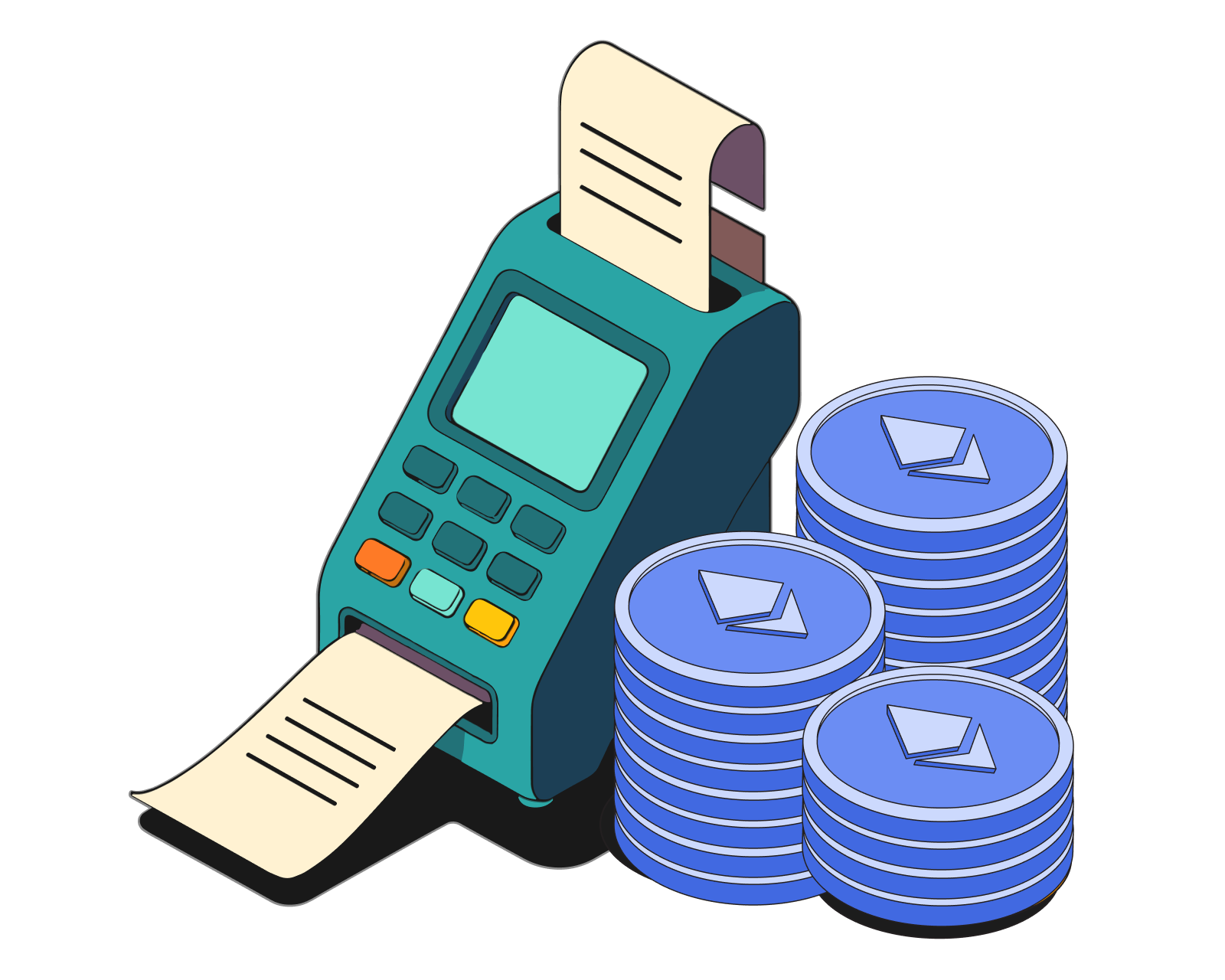
ICO Taxation Explained: Global 2025 Guide
ICOs create unique tax obligations for investors, traders, and founders. This guide explains how ICOs are taxed worldwide, covering utility vs. security tokens, taxable events, cross-border compliance, and reporting strategies.
Read this article →
ICO Taxation Explained: Global 2025 Guide
ICOs create unique tax obligations for investors, traders, and founders. This guide explains how ICOs are taxed worldwide, covering utility vs. security tokens, taxable events, cross-border compliance, and reporting strategies.

Bitcoin Mining Tax Reporting Guide 2025
Bitcoin mining rewards are taxable as ordinary income when received, with additional capital gains when sold. This guide explains global tax rules, reporting requirements, deductible expenses, and compliance strategies.
Read this article →
Bitcoin Mining Tax Reporting Guide 2025
Bitcoin mining rewards are taxable as ordinary income when received, with additional capital gains when sold. This guide explains global tax rules, reporting requirements, deductible expenses, and compliance strategies.
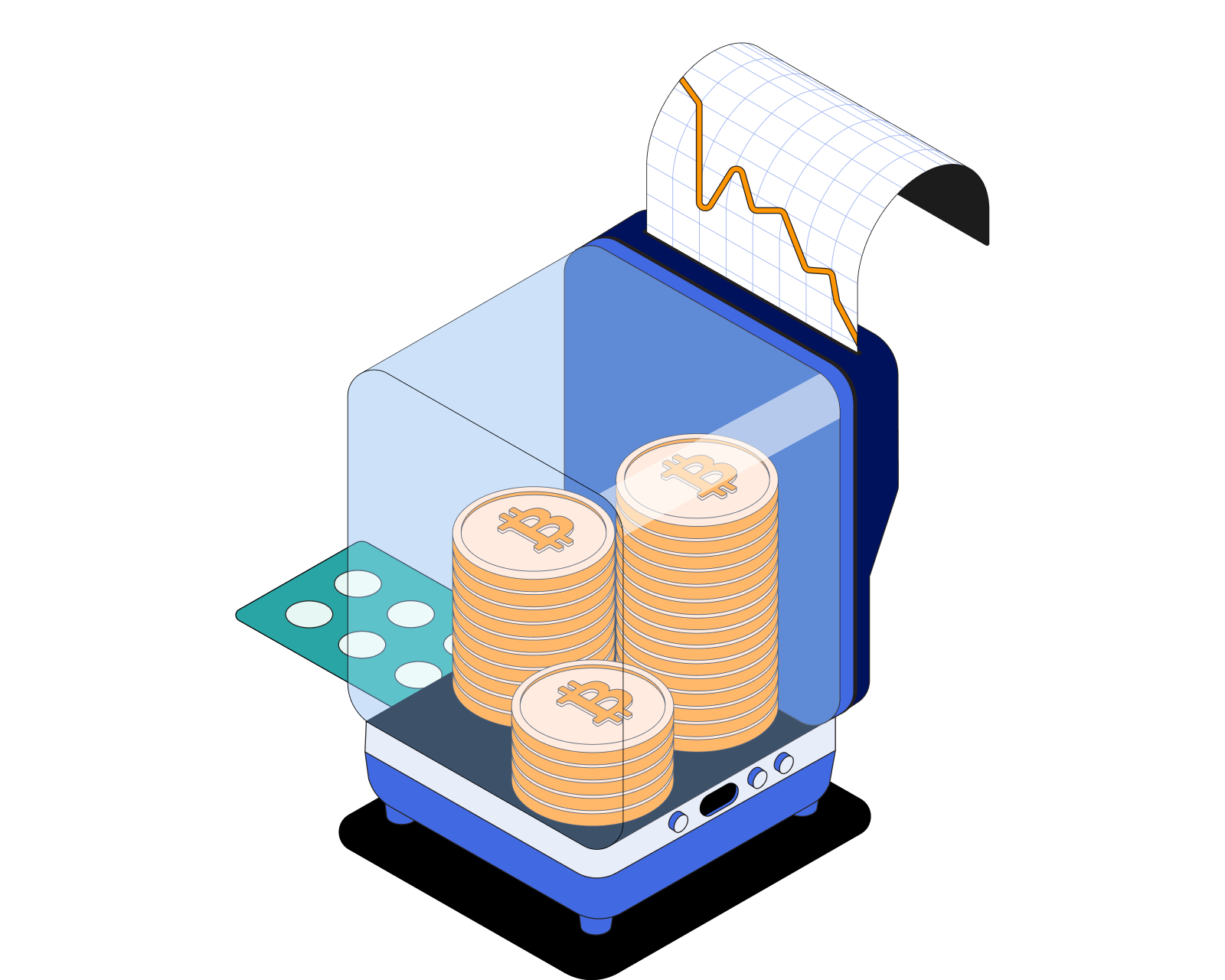
Staking Income Tax Reporting Guide 2025
Staking rewards are taxable in most jurisdictions and must be reported correctly. This guide explains IRS, CRA, HMRC, and ATO rules for staking income, covering taxable events, fair market value tracking, and compliance strategies.
Read this article →
Staking Income Tax Reporting Guide 2025
Staking rewards are taxable in most jurisdictions and must be reported correctly. This guide explains IRS, CRA, HMRC, and ATO rules for staking income, covering taxable events, fair market value tracking, and compliance strategies.
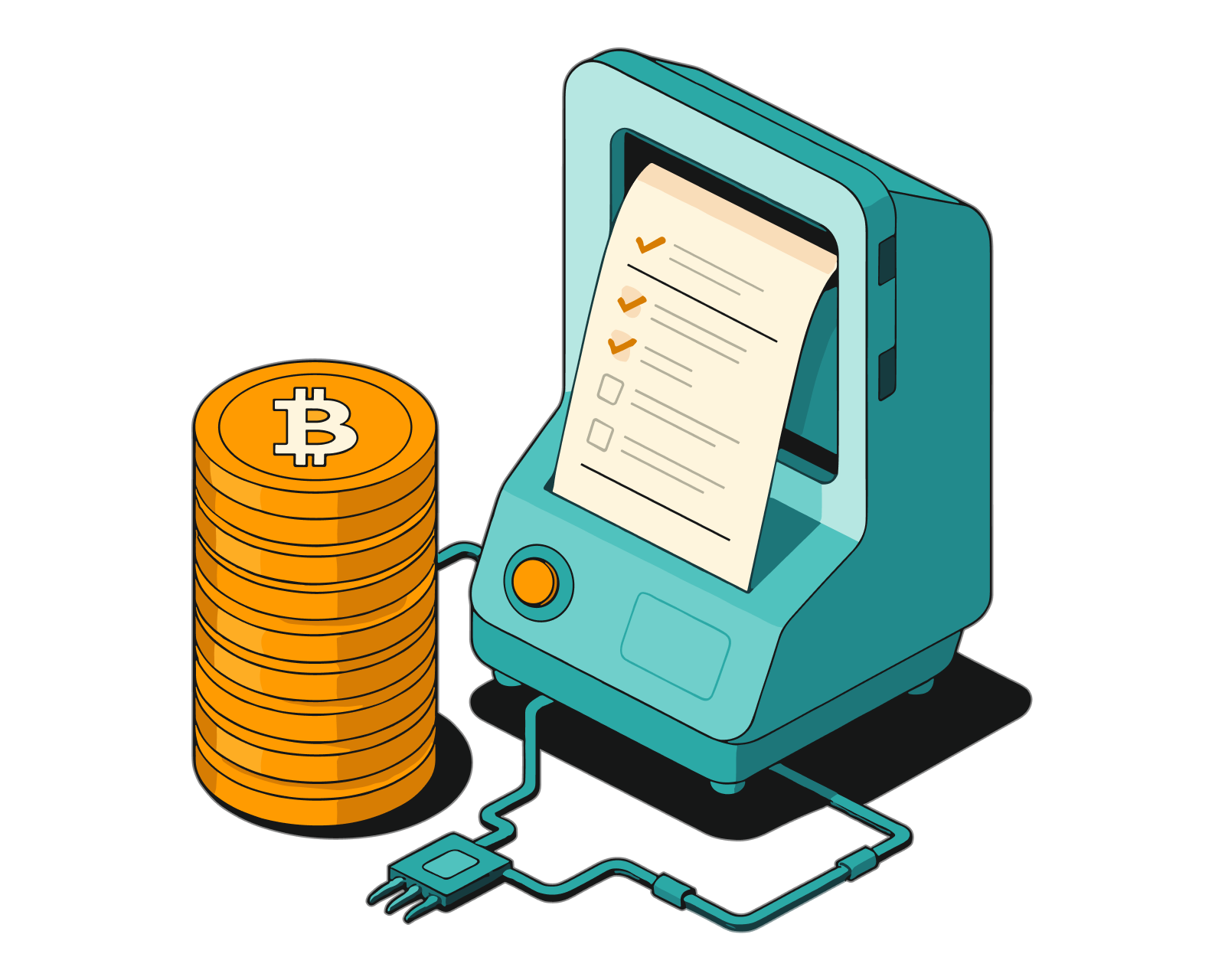
Yield Farming Tax Reporting Guide 2025
Yield farming rewards are taxable income in most jurisdictions. This guide explains how to classify DeFi rewards, track fair market value, calculate capital gains, and report yield farming income correctly.
Read this article →
Yield Farming Tax Reporting Guide 2025
Yield farming rewards are taxable income in most jurisdictions. This guide explains how to classify DeFi rewards, track fair market value, calculate capital gains, and report yield farming income correctly.
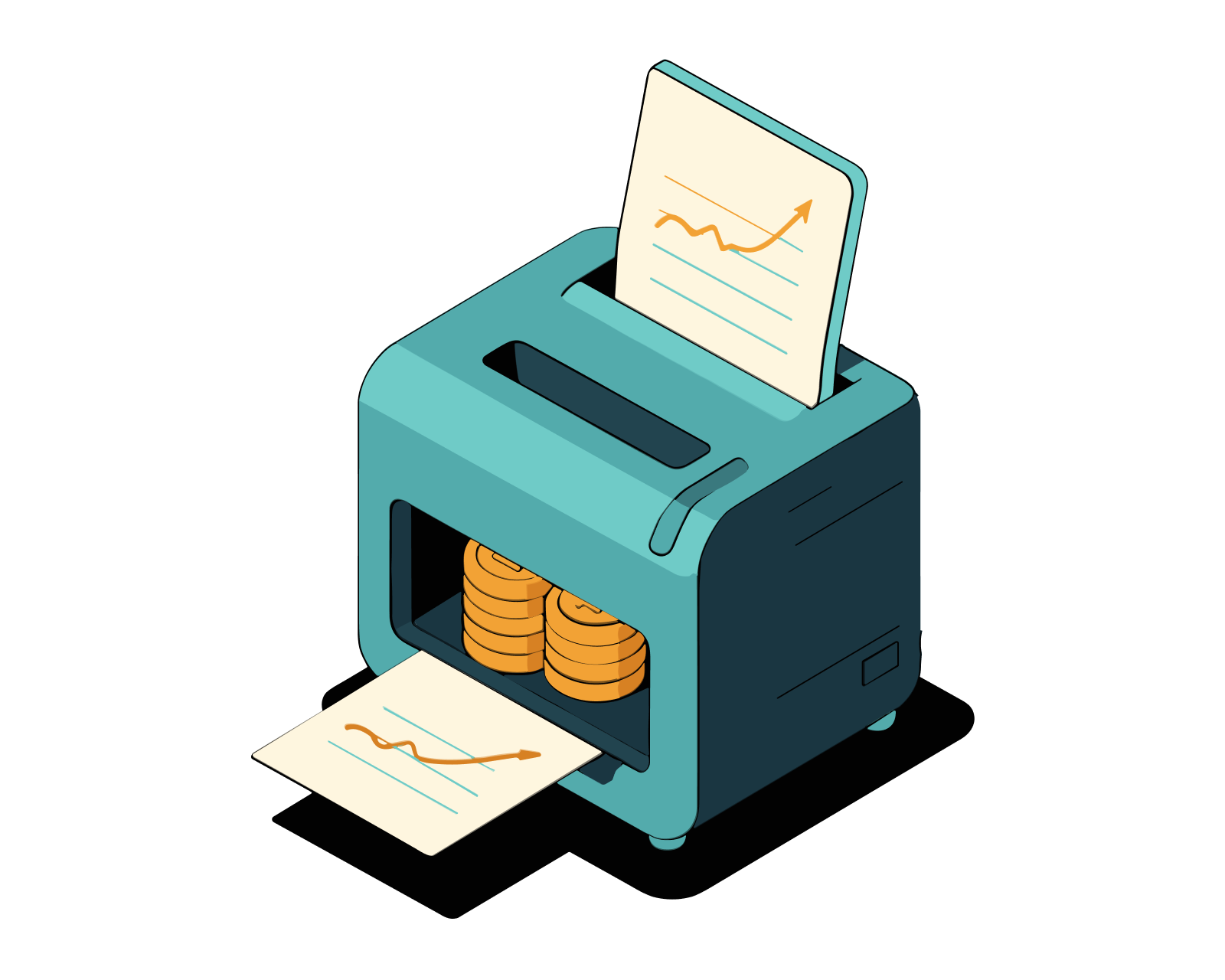
Crypto Rewards Tax Guide 2025
From staking and mining to DeFi yield farming and NFTs, crypto rewards can create taxable income. This guide explains how different rewards are taxed globally and how to report them correctly.
Read this article →
Crypto Rewards Tax Guide 2025
From staking and mining to DeFi yield farming and NFTs, crypto rewards can create taxable income. This guide explains how different rewards are taxed globally and how to report them correctly.

What is an airdrop?
Airdrops are very popular in crypto. Find out what airdrops are, why they are used, and some well known examples.
Read this article →
What is an airdrop?
Airdrops are very popular in crypto. Find out what airdrops are, why they are used, and some well known examples.
STAY AHEAD IN CRYPTO
Stay ahead in crypto with our weekly newsletter delivering the insights that matter most
Weekly crypto news, curated for you
Actionable insights and educational tips
Updates on products fueling economic freedom
No spam. Unsubscribe anytime.
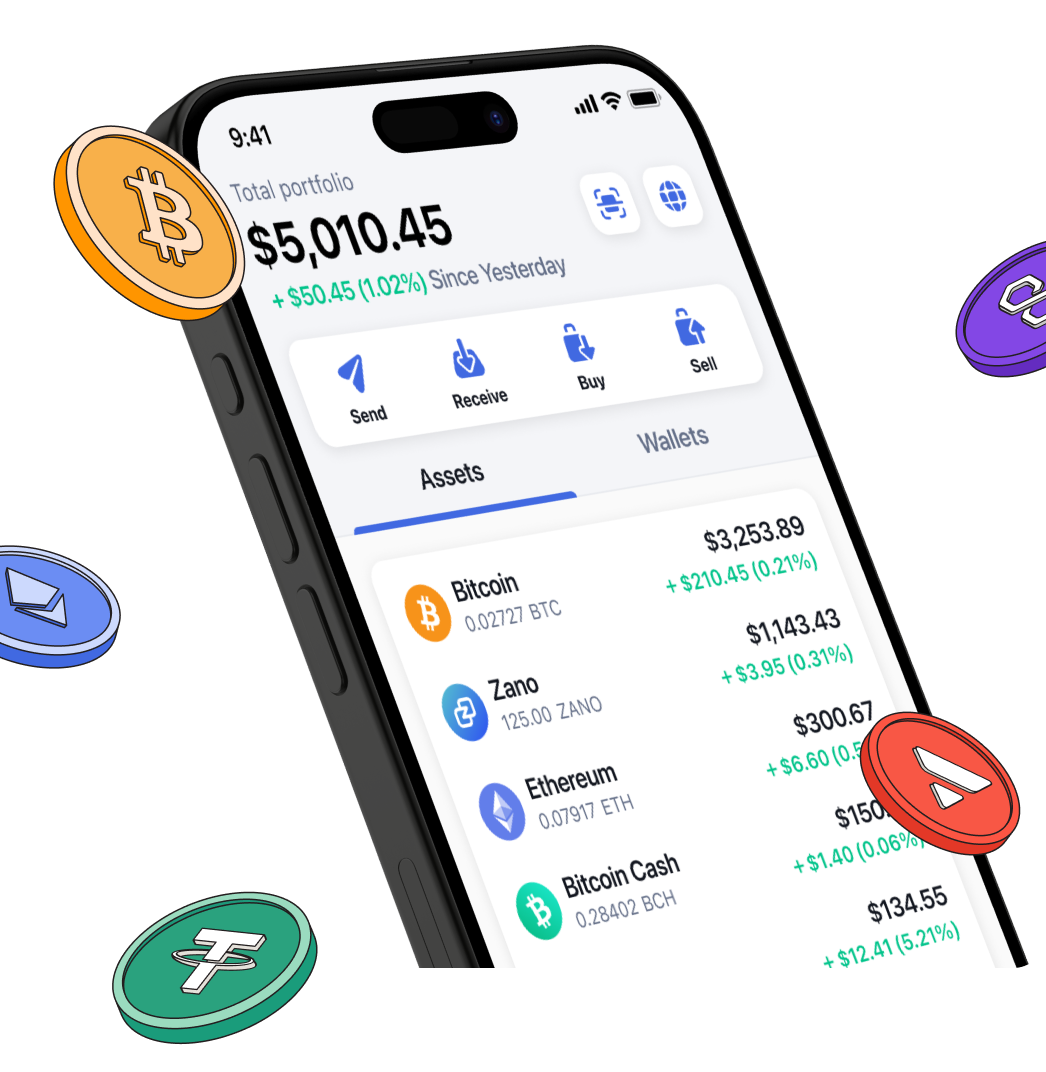
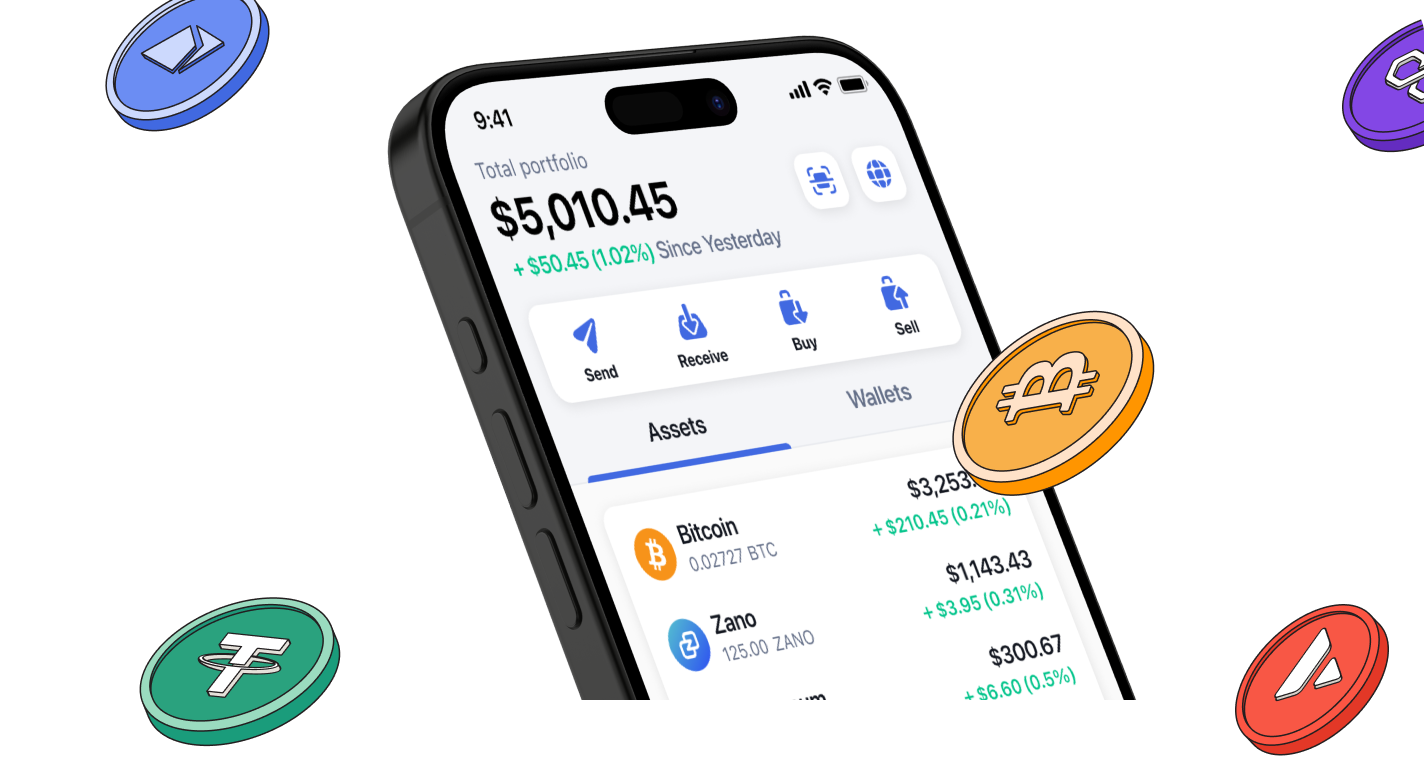
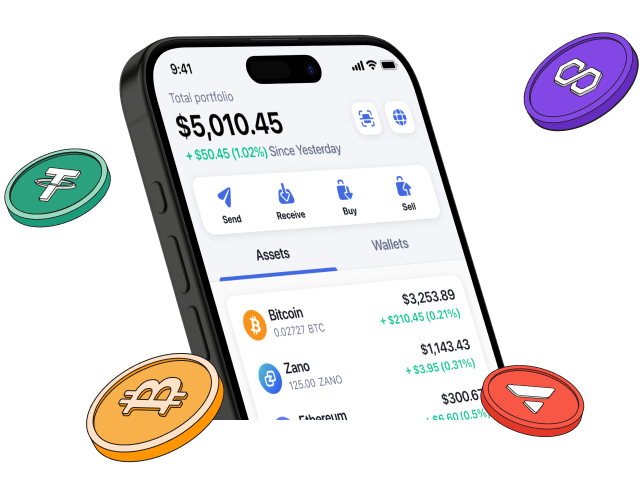
Start investing safely with the Bitcoin.com Wallet
Over wallets created so far
Everything you need to buy, sell, trade, and invest your Bitcoin and cryptocurrency securely

© 2025 Saint Bitts LLC Bitcoin.com. All rights reserved


